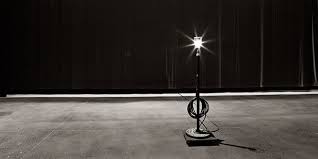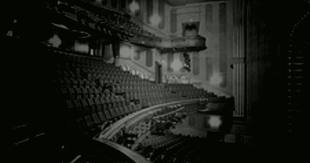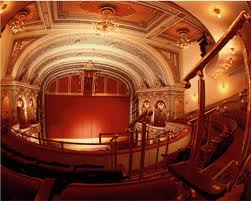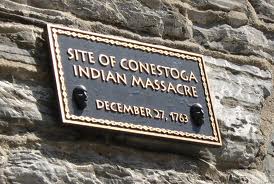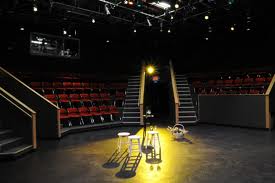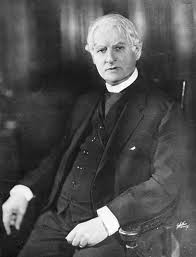Do you believe in ghosts? The theatre has a rich history of ghostly sightings. This is not only true for Broadway stages but for just about any and all theatres. Why is this the case? Is it because those in the theatre have active imaginations? Does it somehow pertain to the ghost light? Is it just part of the idea that theatre is “play” and actors bring forth and give life to characters, resurrecting them in a fashion, and thus are ghostly themselves? All of this may play into it. As someone who has been in the professional theatre for 40 years, I can say that I’ve encountered my share of ghosts. Here are a few accounts.
My First Ghost
As a theatre student at my locale university, I had my first run in with a theatre ghost. There were various incidents that occurred, such as moving lights backstage and things falling. (The whole “bump in the night deal.) The most interesting one occurred during a performance of Shakespeare’s Macbeth, which I was stage managing. One night the actor playing Seyton appeared on stage early. (A good minute or two early.) In this production, Seyton had to make his entrance directly upstage from behind a pillar, which meant he got in place during a blackout and then waited about 10 minutes for his cue. Once he was back there, he was stuck there. He was in essence on stage behind some scenery with no exit.
This actor was very reliable and level headed. This particular night, when he entered on stage early and stood upstage behind Macbeth as the soon-to-be-deposed king ranted, the actor looked uneasy. Was it because he had blown his cue? As the stage manager, it was my duty to account for everything in the performance. After curtain call, I went up to him and asked him why he was on stage so early?
He explained to me that as he stood back there he felt someone touching the back of his neck. He thought it was me being funny. He told me to stop it a few times and then looked off stage to see me at my calling station. He then looked behind him and no one was there. That drove him out onto the stage.
The Fulton Opera House
Many years ago I had the opportunity to stage manage at the Fulton Opera House in Lancaster, PA. This is a beautiful 19th century theatre and it holds the
distinction of being the longest continuously running theatre in the U.S. It also has a lot of presences in it. This may be because of its rich history. The opera house is built on the foundation of the old Colonial prison and it is also the site of the massacre of the last of the Conestoga Indians. It has seen thousands of performances. I had the dubious task of locking up the theatre after performances and rehearsals. Walking through that theatre late at night making sure all was secure was the scariest thing I’ve ever done. I dreaded it. There were always odd noises and I simply felt unnerved until I was finally out the stage door.
People who stayed late to work reported hearing musicians tune up, footsteps and people talking. These things happened when no one else was in the theatre. One night
the set designer told me he would lock up as he was going to stay late for about an hour and finish up some work. I asked him if he wanted me to stay, but he said he was fine and didn’t believe in ghosts. The next morning when I saw him I asked him how it went. He said he was there for about 10 minutes and then corrected himself and said it was five and then decided to leave without finishing the work. I looked at him and he noted there were too many odd noises and voices. He said he’d never try to work late there again and he didn’t.
The Lady in White
I presently work at a university while also freelancing as a theatre director and writer. The university has a relatively new arts center, which is about 20 years old. However, when the new building was put up it was on the site of the old arts center and it incorporated some former elements from that building. There is at least one ghost in the arts center. I have seen her as have others. She has black hair and is dressed in white. She tends to be attracted to performances by certain actresses. I’ve seen her mainly at rehearsals.
Sometimes when I’m in a space, she’ll be near and I’ll simply walk to another part of the theatre I’m working in. (By the way, I should note many different types of people have seen or felt her in some way, including actors, directors, technicians, house managers, stage managers, musicians, professors etc.)
A few weeks ago a student was being interviewed by the school newspaper. She was in the prop room and the subject of theatre ghosts came up. There were two theatre majors and the reporter from the paper present. The reporter asked about theatre ghosts and the student described the ghost so many of us have encountered. As the student started to talk about the ghost, there was a sudden movement in the prop room of some artificial plants; it was as if someone was shaking them or had walked by them. The three in the room, none of whom were touching these props, looked at the synthetic foliage and then left quickly, deciding to conclude the interview somewhere else. They were convinced it was the ghost.
Broadway’s Ghosts
Theatres are odd places. They are the art palaces and shrines where we resurrect characters from plays. There’s a lot of movement of humanity through the doors, rooms and on the stages and in the houses of theatres. It makes sense that a ghost or two would become attached to such places. Consider the rich history of Broadway, the powerful presences who have worked there and the passions The Great White Way has evoked from those who work on it and attend the theatre and it seems to make sense that ghosts would take up residence in each and every theatre. Next time you’re in a Broadway theatre look around. You never know what you may find. Happy ghost hunting!

